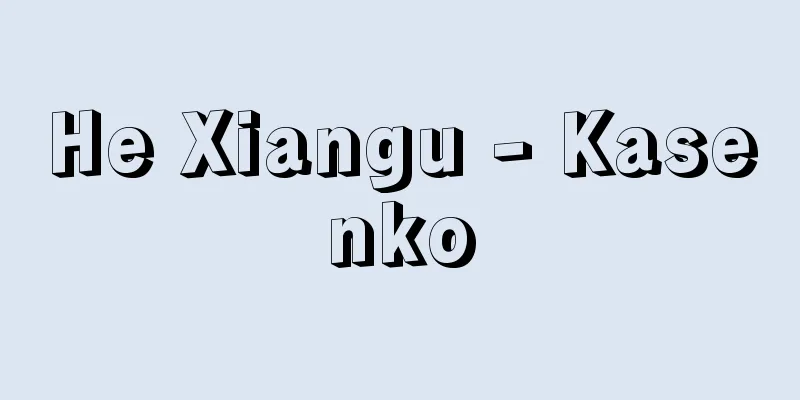Approval - Saika

|
〘noun〙① To exercise discretion and give permission. Especially when the sovereign exercises his own discretion and gives permission for the draft text of a law, order, etc. that has been submitted. Approval. Inka . Inka. [Revised and expanded Japanese English Forest Collection (1886)] [New Book of Tang - Biography of Dong Jin]② Under the old constitution, the act of the Emperor signing bills, budget proposals, etc. that have been passed by the Diet and stamping his imperial seal on them to make them final. Imperial sanction. Source: The Selected Edition of the Japanese Language Dictionary About the Selected Edition of the Japanese Language Dictionary Information |
|
〘名〙① 裁量し、許可すること。特に、君主が提出された法律・命令等の案文を自ら裁量し許可を与えること。裁許。允可(いんか)。允許。〔改正増補和英語林集成(1886)〕 〔新唐書‐董晉伝〕② 旧憲法で、天皇が議会の議決した法律案、予算案などに署名し、御璽を押して確定する行為。勅裁。
出典 精選版 日本国語大辞典精選版 日本国語大辞典について 情報 |
>>: Sanetoshi Saionji - Saionji Sanetoshi
Recommend
Settsu Genji
The direct line of the Seiwa Genji clan, descended...
Onoda [town] - Onoda
Kami-gun, located in the mid-west of Miyagi Prefec...
Japonisme (English spelling) japonisme French
After Japan opened its doors to the West at the e...
Kobe River
A river that flows northwest through the eastern ...
Dinis - Dinis (English spelling)
King of Portugal (reigned 1279-1325). The sixth k...
Local public enterprises
It refers to public interest businesses operated ...
Foreign litigation - Shogaisosho
In the broadest sense, it refers to a lawsuit that...
Swimbladder nematode disease
...The flesh around the worm melts and forms a ca...
Indaisandohyakushu - Third degree hundred poems
…In June 1201 (Kennin 1), Emperor Gotoba asked 30...
Defendant - Defendant; Beklagter
In a civil or administrative lawsuit, the party ag...
Thermosetting resin - thermosetting resin
One of the names for the general classification o...
Aui, RJ - Aui
…Around the same time, British researcher R. Hook...
Township bravery - Kyouyu
Volunteer soldiers of the Qing Dynasty in China. ...
Taraxacum
...A perennial plant of the Asteraceae family tha...
F Zone - Efuryoiki
...A layer called sporadic E (E s ) can suddenly ...

![Obata [town] - Obata](/upload/images/67cb17a5320fc.webp)







